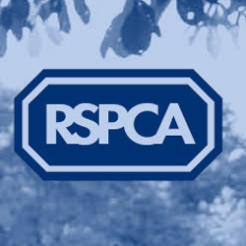An independent review of the RSPCA has concluded that the charity should not pursue the prosecution of hunts, but instead assist in the building up of cases for presentation to the police and Crown Prosecution Service.
The review, which was led by former chief inspector of the Crown Prosecution Service Inspectorate Stephen Wooler and contains 30 recommendations, proposes that the RSPCA modify its own approach to hunting cases in favour of one that seeks to place more reliance for enforcement “where it belongs”, with the police and CPS.
It acknowledges that the high-profile private prosecutions of campaigns, which included that against the Heythrop Hunt in David Cameron’s constituency which cost the charity £326,000, were damaging to the reputation of the RSPCA. However Wooler did conclude that the Heythrop Hunt case was “appropriately brought”, despite the costs being “much too high”.
The review did add that the charity should keep open the option “for the RSPCA to resume prosecution in the event of a manifest failure by the public authorities to act”.
RSPCA: We have learned lessons from Heythrop
In response to the report the RSPCA said it would discuss the recommendation with the Association of Chief Police Officers, and develop a policy relating to its involvement in hunting prosecutions.
Mike Tomlinson, chair of the RSPCA, said: “Hunting prosecutions are a tiny part of the RSPCA’s enforcement work but this review provides an ideal opportunity to look at the way we handle such cases and to make any necessary adjustments.
“Significantly, the review found that the RSPCA’s prosecution of the Heythrop Hunt had been appropriately brought and was not politically motivated. We accept the criticism that the costs of that case were much too high and have implemented lessons learned in subsequent cases.”
The report also recommends that RSPCA inspectors become “Inspectors” as defined in the Animal Welfare Act, so they would be able to exercise powers under the Act and put the “charity’s investigation and prosecution functions on a more formal basis”. The RSPCA has said that it will discuss this recommendation with government.
The review found that there is a lack of defined government strategy for the enforcement of animal welfare legislation in England and Wales, which it describes as “ill-structured and haphazard”.
The review said that the RSPCA should continue its role as a prosecuting body, but has recommended a repositioning of its enforcement role to “bring it up to date with 21st century expectations of transparency and accountability”. This also includes an improvement of its complaints procedure.
'Significant weaknesses' within the charity
In the review, Wooler wrote: “The unstructured and haphazard environment within which the RSPCA operates now means that the RSPCA role is poorly defined and its relationships with the public bodies with whom its work overlaps are unclear.
“Despite this and extensive criticism in the media and elsewhere, there can be no doubt that the RSPCA makes a major contribution and brings expertise that is too valuable to be lost. It also continues to enjoy substantial public support. Nonetheless, there are significant weaknesses."
Tomlinson said: “The RSPCA recognises that the world has dramatically changed during the 190 years that we have been investigating animal welfare complaints and helping to enforce the country’s animal welfare laws.
“We accept the need to reposition the RSPCA’s longstanding enforcement role and will now consider these recommendations in detail. We are determined to ensure that we operate an enforcement process fit for the 21st century. The public and the animals deserve no less.”
The RSPCA has appointed an internal steering group to coordinate its work on responding to the recommendations. The RSPCA Council will report back in 18 months on its progress in responding to the recommendations.
The RSPCA has said that the full review and its response are available here, although the full review was not there at the time of going to press.









